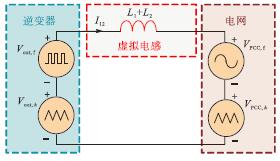面对能源危机和环境问题的挑战,为促进节能减排,早日实现“碳达峰”和“碳中和”的双碳目标,现代电力系统迫切地需要创新与变革。近年来,新型电力电子变换装备在新能源发电、柔性交直流输配电、分布式电源与储能等领域取得了广泛的应用,使得传统能源电力系统的灵活性、可控性逐步增强,多种能源系统耦合性和互动性显著提升。另一方面,电力电子化的综合能源电力系统也出现了建模困难、控制复杂度增大等诸多亟待解决的关键问题。
为展示该领域的新进展和发展趋势,共享最新学术研究和技术成果,《天津大学学报(自然科学与工程技术版)》组织了“电力电子化综合能源电力系统运行控制”专题,最终确定将 12 篇论文收入本专题,内容涵盖综合系统优化、发电及输电控制、配用电电网运行、分布式电源与储能及多电平功率变换等领域。
Batteries are electrochemical devices that convert chemical energy into electrical energy, providing power for a vast array of applications, from portable electronics to electric vehicles and grid-scale energy storage. This topic explores the fundamental principles of battery operation, including electrochemistry, cell design, and materials science. Furthermore, this topic examines the pressing challenges and exciting opportunities in the field of battery technology, including improving energy density, extending lifespan, reducing costs, and addressing environmental concerns related to raw material sourcing and end-of-life disposal. As the world transitions towards a cleaner and more sustainable energy future, advancements in battery technology will play a pivotal role in enabling this transformation.
Carbon neutrality refers to achieving net - zero carbon dioxide emissions by balancing the amount produced with the amount offset. It’s vital for combating climate change. To reach this goal, we need to shift to renewable energy, improve energy efficiency, and enhance carbon capture. Governments, businesses, and individuals all have a role to play in this global effort. Embracing carbon neutrality means building a healthier planet for generations to come.


